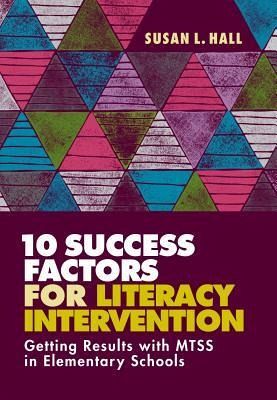
10 Success Factors for Literacy Intervention
Getting Results with Mtss in Elementary Schools
Versandkostenfrei!
Nicht lieferbar
Why aren't more schools seeing significant improvement in students' reading ability when they implement Response to Intervention (RTI) or Multitiered Systems of Support (MTSS) in their literacy programs? These frameworks serve as a way for educators to identify struggling readers and provide the small-group instruction they need to improve their skills. But the success stories are too few in number, and most schools have too little to show for their efforts. What accounts for the difference? What are successful schools doing that sets them apart? Author and education consultant Susan Hall prov...
Why aren't more schools seeing significant improvement in students' reading ability when they implement Response to Intervention (RTI) or Multitiered Systems of Support (MTSS) in their literacy programs? These frameworks serve as a way for educators to identify struggling readers and provide the small-group instruction they need to improve their skills. But the success stories are too few in number, and most schools have too little to show for their efforts. What accounts for the difference? What are successful schools doing that sets them apart? Author and education consultant Susan Hall provides answers in the form of 10 success factors for implementing MTSS. Based on her experience in schools across the United States, she explains the "whys" and "hows" of * Grouping by skill deficit and using diagnostic assessments to get helpful data for grouping and regrouping. * Implementing an instructional delivery model, including the "walk-to-intervention" model. * Using intervention time wisely and being aware of what makes intervention effective. * Providing teachers with the materials they need for effective lessons and delivering differentiated professional development for administrators, reading coaches, teachers, and instructional assistants. * Monitoring progress regularly and conducting nonevaluative observations of intervention instruction. Practical, comprehensive, and evidence-based, 10 Success Factors for Literacy Intervention provides the guidance educators need to move from disappointing results to solid gains in students' literacy achievement.












